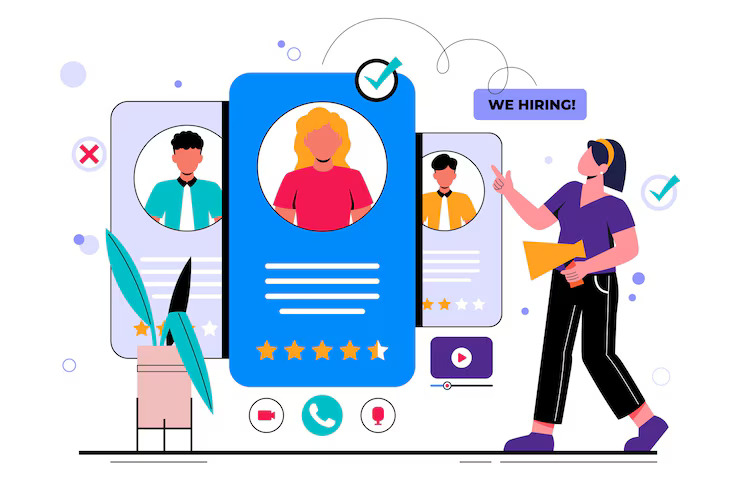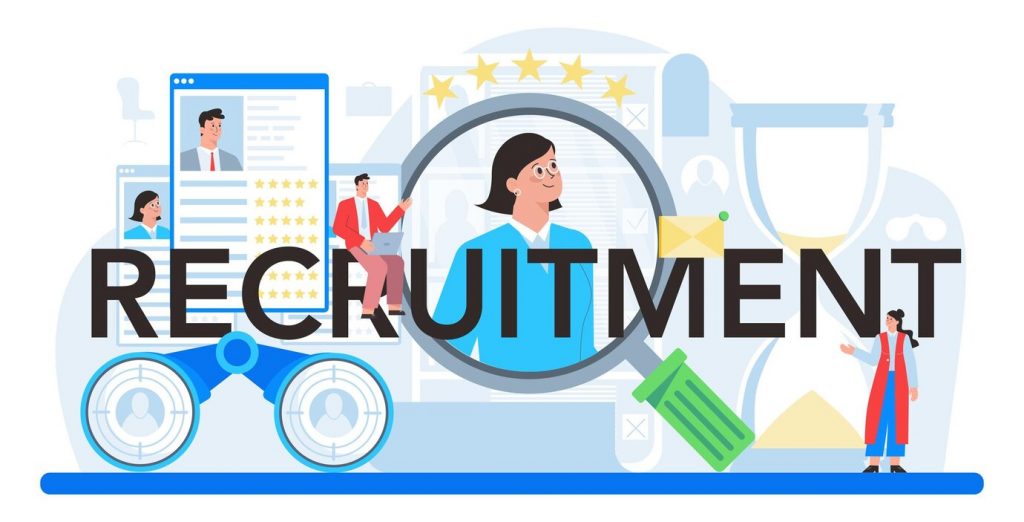Introduction: The Battle for Talent Has Never Been Tougher
The hiring landscape in 2025 is more competitive than ever. With global unemployment at a two-decade low of 4.9% (World Bank, 2024) and top-tier talent often off the market in just 10 days (LinkedIn Hiring Trends Report, 2024), companies are under immense pressure to act fast, stay efficient, and build future-proof teams.
As hiring demands escalate, organizations are increasingly turning to outsourced hiring solutions to meet their growth needs. Two of the most widely adopted models are Recruitment Agencies and Recruitment Process Outsourcing (RPO).
But while both offer a pathway to external hiring expertise, they operate under vastly different principles.
This blog unpacks both models, highlights their key differences, and helps business leaders—whether at an early-stage startup or a multinational enterprise—make an informed decision. Along the way, we’ll examine market data, real-world use cases, and how platforms like JobTwine are modernizing the talent acquisition ecosystem.
Also Read: Top AI Interview Platforms in 2025: Features & Comparison
What is a Recruitment Agency?
Recruitment agencies act as third-party matchmakers. Their business model is transaction-based: companies engage them to source candidates for specific roles, typically in exchange for a placement fee of 15–30% of the hired candidate’s annual salary (Source: SHRM, 2023).
How Recruitment Agencies Work
At a high level, recruitment agencies:
- Collect hiring requirements from a client
- Tap into their candidate database and sourcing channels
- Screen and shortlist resumes
- Coordinate interviews
- Earn fees upon successful hires
Recruitment agencies often specialize in particular functions (e.g., tech, finance, healthcare) or industries, making them ideal for roles requiring niche expertise.
Pros of Recruitment Agencies
- Speed to Hire: Agencies fill roles 25–50% faster than internal teams, especially in high-demand sectors (LinkedIn Talent Solutions, 2023).
- Market Reach: They often have access to “passive candidates” not visible on job boards.
- Flexibility: Agencies are ideal for ad hoc, temporary, or contract hiring.
Cons of Recruitment Agencies
- Limited Integration: Agencies work outside of your internal HR processes, which can lead to misaligned candidate experiences.
- High Cost: Success fees can eat into budgets, especially for high-volume hiring.
- Transactional Relationship: Little investment in long-term employer branding or process improvement.
Takeaway: Recruitment agencies are best suited for fast-filling individual roles, particularly in time-sensitive or hard-to-fill situations.
Also Read: Top LinkedIn Candidate Sourcing Strategies for Hiring Success
What is RPO (Recruitment Process Outsourcing)?
RPO providers go beyond sourcing candidates. They embed themselves within an organization’s HR ecosystem, assuming responsibility for part or all of the recruitment lifecycle. Think of them as an extension of your internal hiring team—but with the infrastructure of a global recruiting firm.
What RPO Providers Offer
An RPO partnership may include:
- Workforce planning and talent forecasting
- Employer branding and candidate experience management
- Job marketing and sourcing strategy
- Interview coordination, assessments, and onboarding support
- Analytics, compliance, and hiring optimization
Types of RPO Models
- Full-Service RPO: The provider handles all recruiting for the organization.
- Project-Based RPO: Used for short-term hiring spikes (e.g., product launch or expansion).
- On-Demand RPO: Flexes with your hiring volume; ideal for companies with unpredictable needs.
Also Read: Interview Simulation: How Practice can Improve Your Job Success
Benefits of RPO
- Process Efficiency: Companies using RPO reduce cost-per-hire by 40% and time-to-fill by 30% on average (Everest Group RPO Report, 2024).
- Scalability: RPOs scale hiring up or down depending on market needs.
- Quality of Hire: RPOs are more likely to use structured interviews and AI-assisted screening tools like JobTwine to remove bias and boost precision.
- Data & Analytics: Integrated dashboards help companies optimize hiring strategies over time.
Case Study: A U.S.-based fintech firm partnered with an RPO to support hypergrowth. Within 12 months, they scaled from 50 to 250 employees while maintaining a 92% offer acceptance rate and reducing their hiring cycle by 47%.
Takeaway: RPOs are ideal for companies looking for long-term hiring optimization, particularly when building or scaling teams rapidly.
Recruitment Agency vs. RPO: Key Differences
|
Feature |
Recruitment Agency |
RPO |
|
Scope |
Role-specific placements |
Full-cycle recruitment management |
|
Relationship |
Transactional |
Strategic partnership |
|
Pricing Model |
Per-hire fee |
Monthly/quarterly retainer or performance-based |
|
Candidate Ownership |
Shared |
Owned by client |
|
Best For |
Urgent or niche hires |
High-volume or sustained hiring |
|
Technology Integration |
Minimal |
Full ATS, CRM, and AI platform integration (e.g., JobTwine) |
|
Process Optimization |
Not included |
Continuous improvement with reporting and metrics |
Takeaway: Choose based on hiring volume, team maturity, and long-term goals.
Which Hiring Model Is Best for Your Business?
Hiring isn’t one-size-fits-all. The right solution depends on your company’s stage, team size, industry, and growth objectives.
Startups & SMBs: Flexibility Over Framework
Startups often need to hire fast but don’t yet have a defined process. Agencies can provide immediate access to candidates without a long-term commitment. If you’re hiring a CTO, VP of Sales, or a handful of engineers, a niche recruitment firm could deliver results quickly.
However, startups with funding and aggressive hiring roadmaps should consider project-based RPOs to set scalable recruitment systems early on.
Mid-Market & Growing Companies: Build for the Long Haul
Companies with growing hiring needs benefit from RPOs that offer:
- Consistency in employer branding
- Data-driven hiring optimization
- Seamless integration with internal HRIS and ATS platforms
- Support for diversity, equity, and inclusion (DEI) goals
Platforms like JobTwine support RPOs with structured interview intelligence, enabling consistent assessments, interview analytics, and bias mitigation—critical for fair hiring at scale.
Enterprises: Efficiency, Compliance & Global Reach
Enterprises operating across geographies often choose RPOs for their ability to navigate complex compliance regulations, support multilingual recruitment, and scale processes across business units. In regulated industries like healthcare and finance, structured RPO models deliver both audit-readiness and agility.
Key Questions to Ask Before Choosing:
- Do we need short-term help or long-term optimization?
- Are we hiring five people or fifty?
- Do we want a plug-and-play solution or one that grows with us?
- How important is integration with our internal systems?
Also Read: AI in Hiring: How Companies Use Predictive Analytics to Find Top Talent
Benefits of Choosing the Right Hiring Partner
Selecting the right hiring partner delivers measurable benefits beyond headcount:
- Reduced Time-to-Hire: Companies working with RPOs reported a 25–40% faster time-to-hire (NelsonHall RPO Report, 2024).
- Improved Candidate Quality: Structured interviews using AI interview copilots like JobTwine consistently produce higher-quality hires with better retention (JobTwine Case Study, 2024).
- Scalable Infrastructure: As business needs evolve, a good hiring partner adapts, without sacrificing consistency.
- Enhanced Collaboration: RPOs align with internal stakeholders, reducing friction and duplicative work across HR, operations, and department heads.
Takeaway: The hiring partner you choose should unlock efficiency, agility, and quality—not just fill roles.
Augmenting Hiring with AI: How JobTwine Automates What Humans Typically Handle
Modern recruitment is being reshaped by automation—and platforms like JobTwine are leading this transformation.
In a traditional hiring setup, human recruiters and interviewers collectively spend over 4 hours per candidate managing workflows—ranging from designing questions to compiling post-interview debriefs. Here’s a breakdown of time typically spent:
|
Hiring Task |
Time Spent by Humans |
|
Designing interview flow |
30–60 mins |
|
Scheduling panels |
15–45 mins |
|
Creating evaluation criteria |
30 mins |
|
Conducting interview |
45–60 mins |
|
Note-taking |
20–30 mins |
|
Post-interview scoring |
20–30 mins |
|
Debrief reports |
30–60 mins |
|
Total |
~4.5 to 6 hours per candidate |
Now multiply that by 10 or 100 open roles—suddenly, hiring becomes a major operational burden.
JobTwine changes this.
By automating each of these steps, JobTwine turns hiring into a streamlined, data-rich, and highly scalable operation. Here’s how:
- Customizable Playbooks: Prebuilt or editable templates tailored to specific roles reduce planning time to near-zero.
- AI Copilot: Automatically aligns questions to the required skill sets, eliminating manual mapping.
- JayT Agent: An autonomous avatar that can either conduct or co-pilot interviews, reducing interviewer fatigue.
- Auto-Evaluation: Instant AI-generated scoring and analytics streamline candidate assessment.
- AI Feedback Engine: Real-time transcription and tagging enable deep analysis with minimal human input.
- Auto-Debrief Reports: AI compiles insights across all rounds, producing summaries that feed directly into hiring decisions.
Result: What once took hours now takes minutes—with higher consistency, reduced bias, and better hiring outcomes.
Takeaway: Whether you choose an RPO or an agency, embedding JobTwine into your hiring process unlocks exponential gains in efficiency, structure, and decision-making accuracy.
Also Read: Cultural Sensitivity in Hiring: Why it Matters in a Global Workforce
Final Thoughts: Making the Right Decision
The distinction between recruitment agencies and RPOs boils down to this: agencies offer speed; RPOs offer strategy.
- Choose recruitment agencies when you need specialized talent fast or when you have unpredictable hiring needs.
- Opt for RPOs when you want to build a scalable, repeatable, and data-backed recruitment engine.
As hiring complexity continues to rise, so does the importance of intelligent hiring infrastructure. Tools like JobTwine are increasingly embedded into both recruitment agency and RPO workflows—empowering teams with structured interviews, AI analysis, and real-time interviewer guidance to ensure smarter, fairer hiring.
Book a demo with JobTwine today to see how your organization can modernize its hiring approach with AI-backed interview intelligence.
Also Read: Diversity, Equity, and Inclusion (DEI) in Hiring: Strategies for Success
Frequently Asked Questions:
What’s the main difference between an RPO and a recruitment agency?
An RPO manages the entire recruitment process end-to-end as a strategic partner, while a recruitment agency is typically engaged for specific placements on a transactional basis.
Is RPO more cost-effective than using multiple recruitment agencies?
Yes. While RPO involves upfront investment, it typically reduces cost-per-hire, improves efficiency, and delivers better long-term ROI—especially for companies with sustained hiring needs.
Can I use both an RPO and a recruitment agency?
Yes. Many companies use a hybrid model—employing an RPO for core roles and agencies for highly specialized or short-term needs.
Does JobTwine work with both RPOs and recruitment agencies?
Absolutely. JobTwine integrates seamlessly into both models by enabling structured interviews, AI analytics, and real-time feedback—improving outcomes regardless of the hiring partner.
How do I know if my company is ready for an RPO?
If you’re scaling rapidly, have inconsistent hiring processes, or want to improve quality-of-hire and time-to-hire metrics, an RPO could be the right fit.




